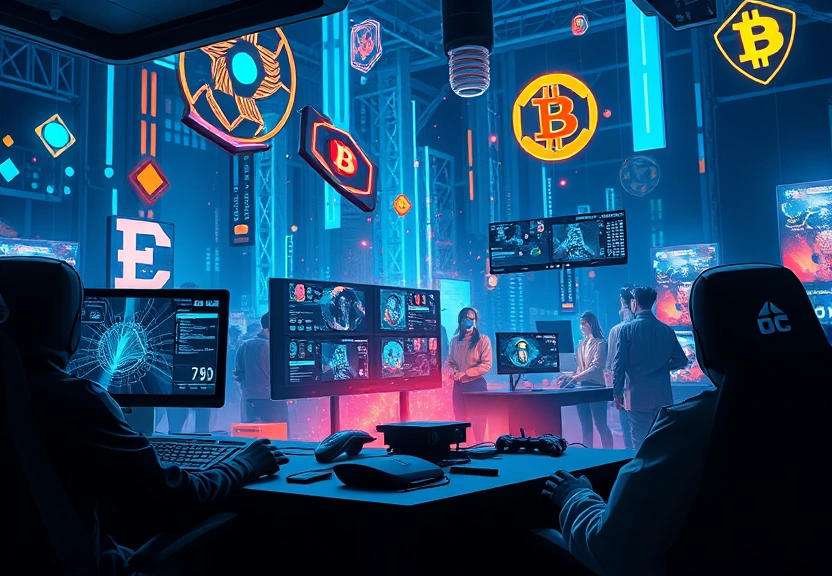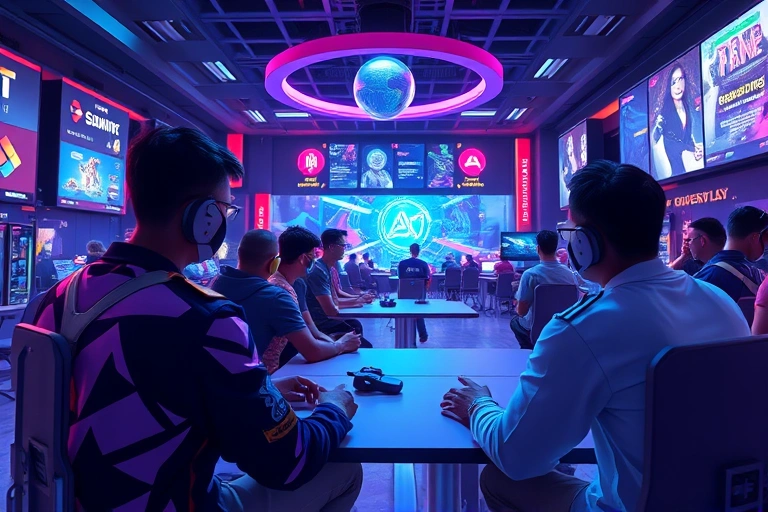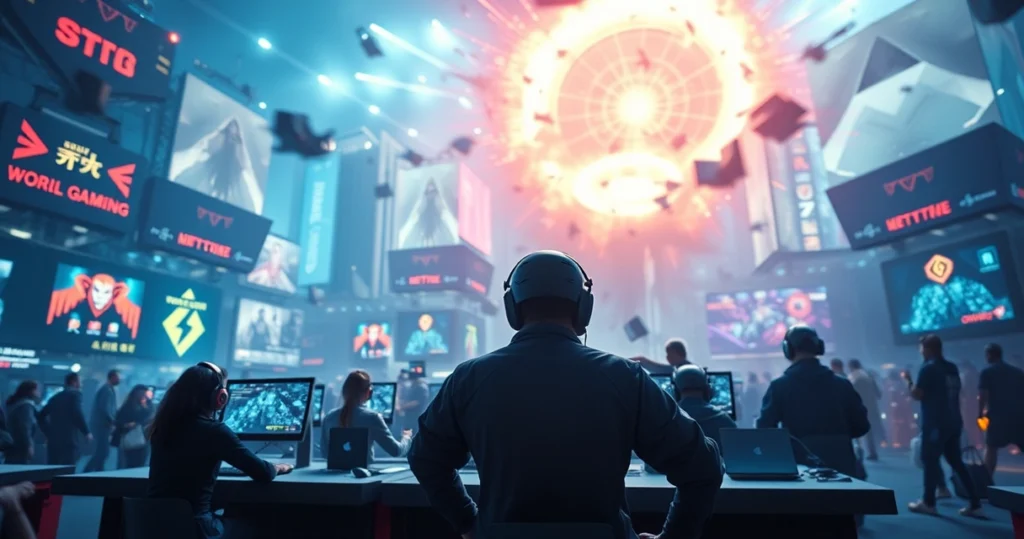Blockchain Gaming Explosion 2025: How NFT Games Are Creating Real Digital Economies
Introduction
The evolution of technology has a profound impact on various industries, and the gaming sector is no exception. With the rise of blockchain technology, a new paradigm is emerging in the form of blockchain gaming. By 2025, the gaming landscape is expected to be dominated by NFT games, which are not only providing entertainment but are also creating real digital economies. This article explores how these innovations are reshaping the gaming experience and fostering economic opportunities for players worldwide.

Main Development
The concept of play-to-earn gaming is revolutionizing the way players interact with games. Unlike traditional gaming models, where players invest time and money with little to no return, blockchain gaming allows players to earn tangible rewards. This is possible through the integration of non-fungible tokens (NFTs), which represent ownership of in-game assets. In 2025, we can expect a surge in crypto gaming platforms that leverage this technology to create unique experiences.
One of the most significant advantages of decentralized gaming is that it empowers players by giving them true ownership of their digital assets. In traditional games, in-game items belong to the game developers, but NFTs allow players to buy, sell, and trade their assets freely. This shift is fostering a sense of community and collaboration among players, as they can now participate in a shared economy.
The blockchain offers transparency and security, ensuring that transactions are recorded immutably. This aspect is crucial for building trust in blockchain gaming 2025, where players invest real money into digital assets. Furthermore, as these games gain popularity, they will attract more developers, leading to a diverse range of gaming experiences that cater to different audiences.
🎥 Related video: Blockchain Gaming Explosion 2025: How NFT Games Are Creating Real Digital Economies
Analysis and Benefits
The benefits of NFT games extend beyond mere financial incentives. They offer players a chance to engage in innovative gameplay mechanics that are not possible in traditional games. For instance, some games incorporate elements of virtual reality (VR) and augmented reality (AR), creating immersive environments where players can interact with their NFT assets in real-time. This level of engagement enhances the gaming experience and keeps players invested in their digital worlds.
Moreover, the emergence of digital economies within these games can lead to the creation of new job opportunities. Players can become entrepreneurs by building businesses around their in-game assets, such as virtual shops or trading platforms. This shift is not just beneficial for individual players; it also contributes to the overall growth of the gaming industry.
Another critical aspect is the social impact of blockchain gaming. As players from various backgrounds participate in these economies, they form communities that promote inclusivity and collaboration. The ability to earn through gaming can also provide financial support to individuals in developing regions, where traditional job opportunities may be limited.
Practical Implementation
For those interested in exploring the world of blockchain gaming, understanding the practical steps to engage with these platforms is essential. First, players need to set up a cryptocurrency wallet that supports NFTs. This wallet will enable them to store their digital assets securely and participate in transactions.
Once the wallet is established, players can explore various NFT games available on the market. Each game offers unique mechanics and economic structures, so it is important to research and choose games that align with one’s interests. Participating in communities through social media platforms or forums can also provide valuable insights and tips for maximizing the gaming experience.
Moreover, players should educate themselves about the risks associated with crypto gaming. The digital asset market can be volatile, and it is crucial to invest wisely. Understanding market trends and the fundamentals of blockchain technology will empower players to make informed decisions regarding their in-game assets.

Frequently Asked Questions
What are NFT games?
NFT games are digital games that utilize non-fungible tokens to represent ownership of in-game assets. These assets can include characters, skins, weapons, and more, allowing players to buy, sell, and trade them in a decentralized marketplace.
How does blockchain technology enhance gaming?
Blockchain technology enhances gaming by providing transparency, security, and true ownership of digital assets. Players can trust that their transactions are secure and their assets are uniquely theirs, which fosters a more engaging gaming environment.
What is play-to-earn gaming?
Play-to-earn gaming refers to a model where players can earn real-world value through their in-game activities. This can include earning cryptocurrency, NFTs, or other rewards that can be traded or sold outside the game.
What are the risks associated with blockchain gaming?
Some risks include market volatility, potential scams, and the need for a basic understanding of blockchain technology. Players should approach investments with caution and conduct thorough research before engaging in any transactions.
How can players participate in digital economies through blockchain games?
Players can participate in digital economies by engaging in the trading of NFTs, creating virtual businesses, and collaborating with other players in the game. This interaction can lead to economic opportunities that mirror real-world business dynamics.
Conclusion
The rise of blockchain gaming is poised to redefine the future of digital entertainment. By 2025, the integration of NFT games will create robust digital economies that empower players and foster innovation. As the gaming industry evolves, it is essential for players to adapt and embrace these changes, exploring the vast opportunities that lie ahead. With careful understanding and engagement, players can thrive in this exciting new landscape, contributing to a vibrant, decentralized gaming ecosystem.







